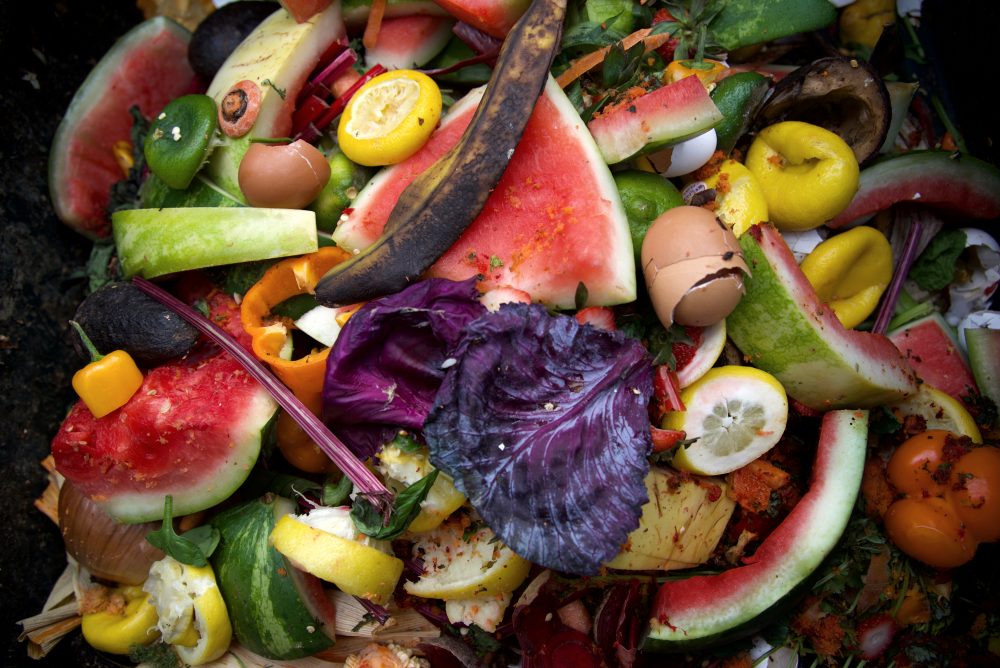Artist collaborates with kids to put face on climate change; HBO series opens conversation about sexual assault; Bloomi normalizes sexual health conversations.
Every Bite Counts – Food & The Environment
Climate change is real, and the damaging effects of humanity’s industrial economies are accelerating it. In fact, a recent study by Nature found that US cities are underestimating their emissions by as much as 145%. With over two-thirds (68%) of US adults saying it’s a personal mission of theirs to reduce their own carbon footprint, the drive for environmental betterment is ramping up in a big way.* Damaging practices both past and present leave people and brands calling for change and they’re finding innovative ways to Apocalypse Proof the future of our world.
People are working to save the planet through small actions with big impact – starting with food. According to the FDA, 30-40% of the US food supply becomes food waste. As it decomposes in landfills, it releases methane gas, a greenhouse gas 28 to 36 times more damaging than carbon emissions from vehicles, expediting its harmful impact on Earth. To creatively combat this, waste warrior app Too Good To Go, which recently expanded to the US in 2020, offers a resourceful solution to bridge the gap between unsold meals, produce, and hungry customers. Through the app, restaurants and stores estimate the type and amount of their surplus food, either meals or unused ingredients, and pack them in “Surprise bags” for affordable purchase to enjoy or chef up at home. People then peruse the available store offerings on the app and reserve their bag for pickup at the end of the day, efficiently preventing food from reaching landfills.
Other brand efforts are going the distance to help inspire responsible food habits at home. Last month, Hellmann’s released a timely Super Bowl ad featuring Amy Schumer. The spot encouraged people to #MakeTasteNotWaste by extending their leftovers with simple innovative solutions and recipes – like adding Hellmann’s mayo into the mix. The brand went further to create a beginner’s guide to making the most of potentially trashed leftovers, such as extending the shelf life of meals through using the freezer.
Some brands are redefining food altogether to prevent excess carbon emissions. Unlike Beyond Meat’s patty-based approach, alternative meat start-up Redefine Meat is tapping into 3D printing technology to transform plant-based proteins into real-to-life steak cuts – a task yet to be achieved by their competitors. By using printing technology, their alt-steak products are made with a 95% smaller environmental footprint compared to animal agriculture’s C02 impact. Having recently raised $29 million, the brand plans to use the funds to create a full line of products and roll out industrial 3D meat substitute printers to distributors. Their goal is to expand across Europe, Asia, and then North America within the year.
Brands can motivate people to save the Earth, too. A CPG brand can offer incentivized ways for people to practice environmentally friendly habits. Offer deepened discounts to customers who return packaging to be recycled at brand-specific bins in major grocery chains. Consider gamifying the eco-conscious behavior, encouraging communities to compete for most recycled products – all while increasing foot traffic to retailers. Display weekly progress across social and award the winning community with personal accolades featured on owned channels and exclusive access to new emerging products.
Source: *Horizon Media, Finger on the Pulse. Survey fielded 11/11/20-11/17/20, n=864




